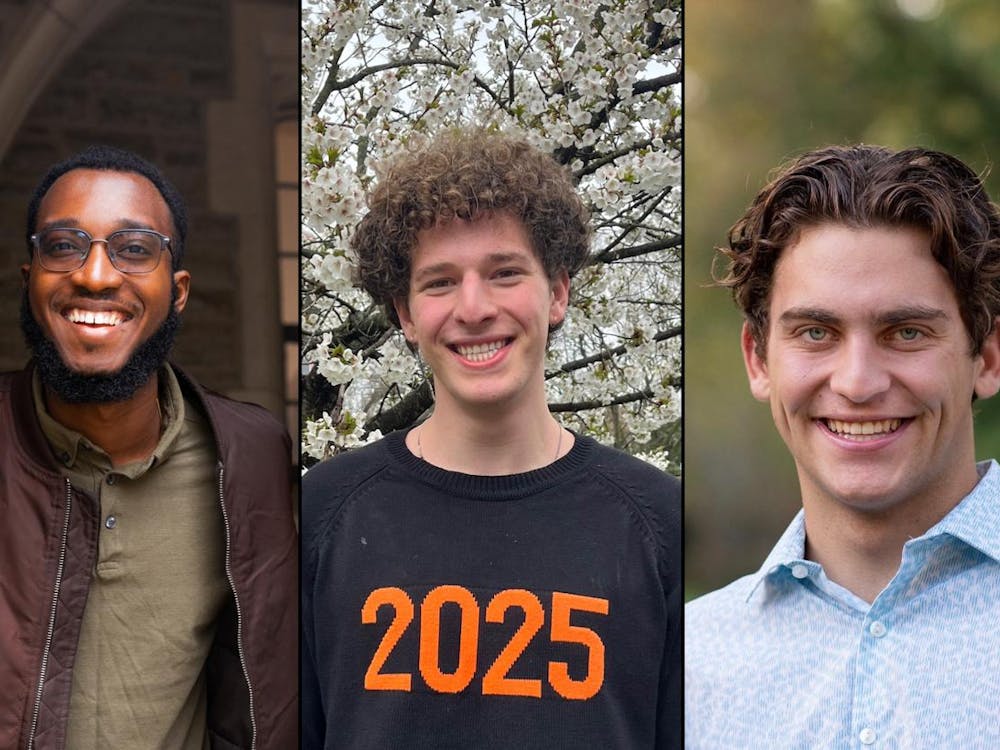As students receive the vaccine against meningitis B this week, its availability only to certain members of the community has evoked mixed feelings from those excluded. While some said they were confident in the University’s decision, others have expressed concerns about their health and safety, and have attempted unsuccessfully to persuade the University to provide them with the vaccine.
In an email announcement sent on Nov. 18, the University said that only undergraduates and graduate students living in on-campus dormitories and staff with certain health conditions would receive the vaccine. This meant that most faculty, staff and graduate students living off-campus were ineligible to be protected against meningitis.
“I’ve just always been health-conscious, and if there is a way for me to protect myself against the disease, I want to do it,” Christina Karas GS said.
Karas is a member of the 2 Dickinson St. Co-op, in which she regularly dines with 40 to 50 undergraduate students. Because she lives in an off-campus apartment, she is ineligible for the vaccine. Karas said she contacted the Office of Environmental Health and Safety and was denied access to the vaccine.
“We share silverware,” Karas said. “Do I really want to possibly risk my health depending on how well someone washes their dishes?” she said.
Sharan Grewal GS also expressed concern about not receiving the vaccine. His housing plan excludes him from the University’s designated vaccination group.
“The University’s decision makes sense for those Ph.D. students who don’t have as many classes and aren’t on campus often, but I’d say that I interact with the student body as much as graduate students living on-campus,” Grewal said.
Grewal added that because of all the time spent in classes, lectures, campus-wide events and the gym, graduate students like him should have the option of receiving the vaccine.
The University’s decision to exclude members from the vaccination group was based on a recommendation by the Centers for Disease Control and Prevention. According to the CDC guide to containing meningococcal disease outbreaks, the protocol for designating vaccination groups begins with focusing on those with highest risk.
“All of the cases that have occurred at Princeton University have occurred among undergraduates living on campus,” Amanda Cohn, a pediatrician and meningococcal disease expert at the CDC, said. “We want to target the vaccine campaigns to the people who are at highest risk. And that appears to be the group that would get the most benefit.”
Thomas Clark, head of the Meningitis and Preventable Diseases Branch of the CDC, said in a Dec. 5 discussion panel that student dormitories are especially conducive to the spread of meningitis. Because such living styles do not exist among some graduate students and faculty members, he said there is no reason to include them in the vaccination campaign.

“In general, the risk is elevated at ages 16-23 and peaks at 19. It’s really based on the population at risk, and that is the undergraduate,” Clark explained. “We can’t say that the risk [for others] is zero, but it seems more like the background risk.”
Faculty and staff contacted for this story did not express worries as great as those of graduate students.
“I am not personally concerned,” said Nicole Basta ’03, an associate research scholar in the Ecology and Evolutionary Biology department who also specializes in the study of meningococcal disease. “I think that the kind of close contact required for meningococcal transmission is unlikely to be the kind of interaction faculty will have with students,” she added.
Because meningitis infections depend on lifestyle choices, such as sharing cups and making prolonged face-to-face contact, she explained that there is no evidence to suggest that the faculty and staff are in any danger.
Professor Evan Thomas, the Ferris Professor of Journalism and a faculty member in residence at Mathey College, said that he wasn’t worried about not receiving the vaccine either.
“My wife and I live in Blair Tower, and because we don’t see the kind of contact necessary for the spread of meningitis with students, we are fine,” he said. “We trust the University and the CDC with their decision.”
The medical staff at University Health Services, who directly deal with meningitis patients, will also not receive the vaccines.
When students visit UHS with symptoms of meningitis, there are no special precautions taken and casual contact is used to observe the patient, according to Robin Izzo, Environmental Health and Safety director, and Peter Johnsen, medical director at UHS. Masks are only worn when performing flu tests.
However, faculty members like German professor Joel Lande, the resident faculty fellow in Forbes College, expressed concern about not receiving the vaccine. He said that he has somewhat limited his interactions with undergraduate students due to concerns of contracting meningitis.
“The major cause for concern for me, in particular, is that I have a four-month-old baby, and as a result of this outbreak of meningitis, I have avoided eating in the dining halls and involving myself too much in the activities of the college in fear of contracting the disease myself and giving it to my daughter,” he said.
Lande added that even receiving the vaccine would not relieve his concerns as long as the meningitis bacteria are still present on campus.
Neither the CDC nor the University has given any indication that the group of individuals eligible for the vaccine will change.
As of press time, a total of 3,355 students have been vaccinated against meningitis B in the first two days of the vaccination campaign, according to University Spokesperson Martin Mbugua.







